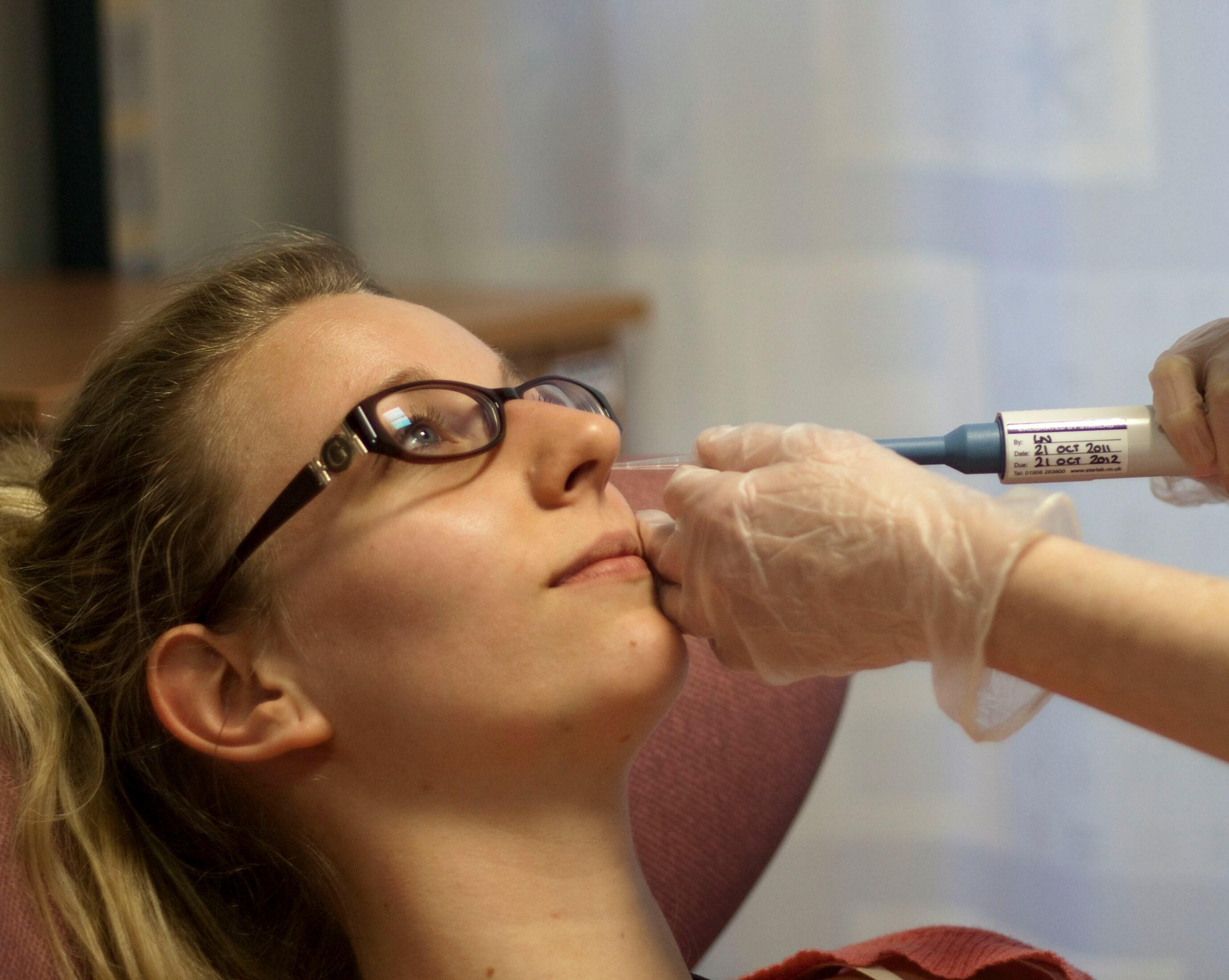
LSTM’s respiratory group has begun the latest study looking at the effect of the new nasal spray flu vaccination on the carriage of pneumococcal bacteria in the nose after recruiting a record number of volunteers for the programme.
Working alongside the National Institute for Health Research (NHIR), the research umbrella for the NHS, staff from LSTM and their partners from the Royal Liverpool and Broadgreen University Hospital NHS Trust, recruited over 1800 volunteers at fresher’s fayres and meetings earlier this term and unusually were able to fully sign up and take consent from 221 volunteers in the weeks that followed. This means that the team have been able to future proof this particular study by already having signed up volunteers that will make up future cohorts.
The study comes as a result of a 2.5 million USD grant awarded to the team by the Bill and Melinda Gates Foundation so that the research could be carried out using the unique Experimental Human Pneumococcal Carriage (EHPC) model, developed at LSTM. The model allows pneumococcal bacteria to be placed directly into the nose to examine the immune responses in a controlled and safe manner. LSTM’s Dr Daniela Ferreira is leading the studies, she said: “We are at a really exciting stage in the studies and have had an incredibly positive response to this particular study in terms of volunteers. I think that the real difference has been our partnerships with the NHS, giving us an opportunity to explain the importance of the study and reassuring potential volunteers that their safety is our top priority.”
Following the first cohort of the study looking at flu, the group will begin two further studies aiming to understand why people who are older or who have conditions such as asthma are vulnerable to developing pneumonia. These particular studies require volunteers who have mild asthma or who are aged between 50 and 84 years old and are otherwise healthy. “The contribution that volunteers make is immense and there has never been a better time to get involved.” Continued Dr Ferreira: “The model that we use for inoculation means that it is safe, and our volunteers are monitored throughout - over 700 people have already taken part without any adverse effects. Pneumonia is an incredibly common and serious illness and the work will allow us to answer some important questions about why the young, the older and those with certain conditions are disproportionately affected. By understanding more about vulnerability we have a greater chance of developing an affordable and effective vaccine that can benefit people all over the world.”
If you would like to take part in the study you can read more about it here. In addition, if you would like to find out more information about the study, please listen to a soundbite of Dr Daniela Ferreira here.